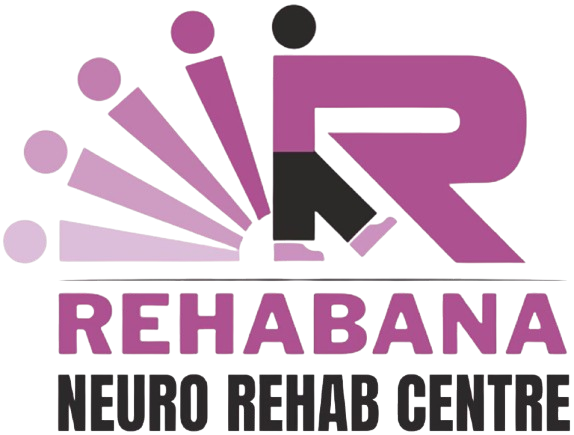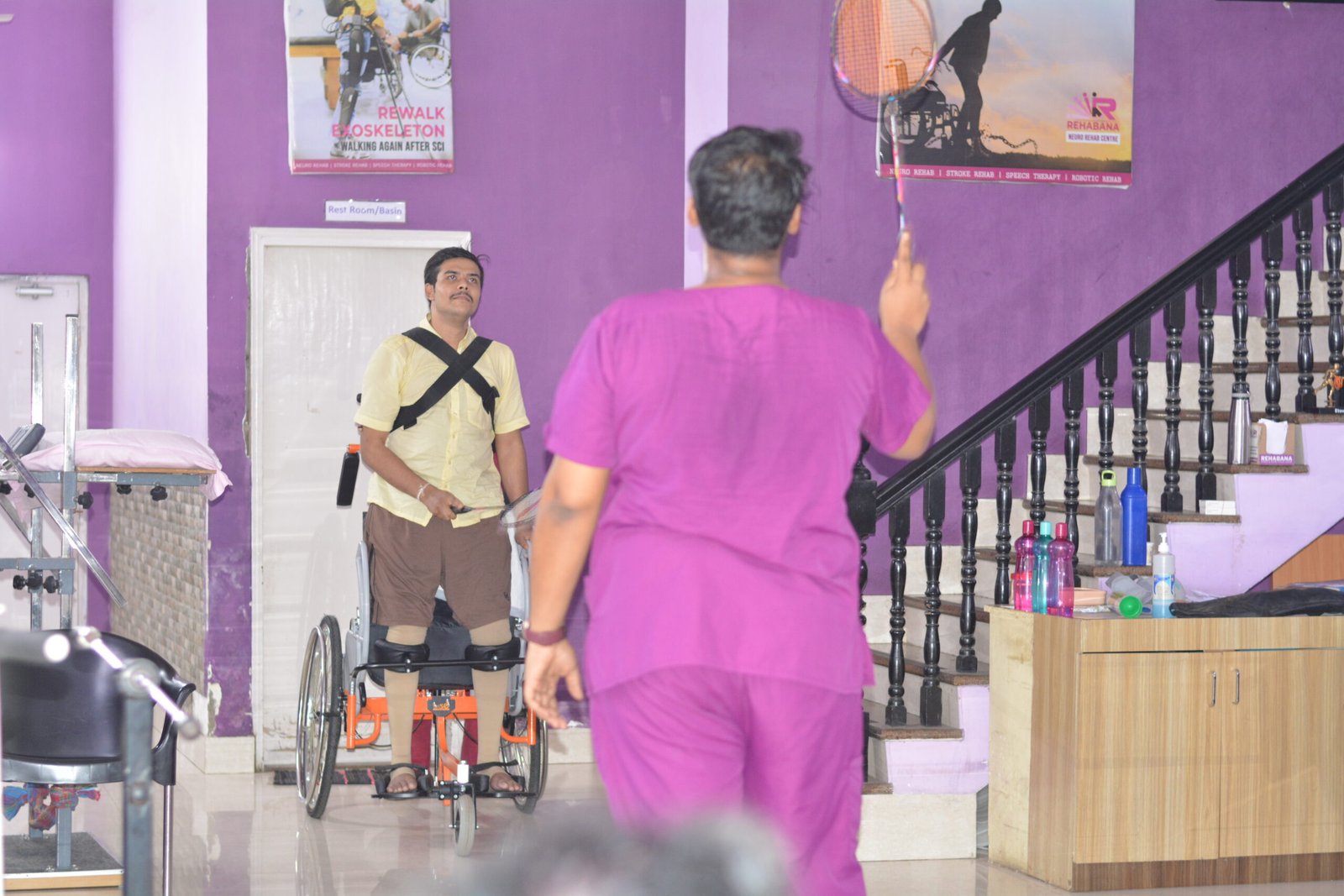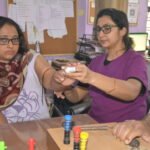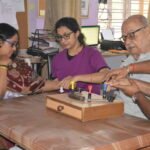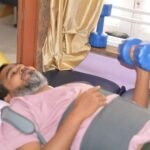Understand rehab and therapy, how they differ, and when you need each. Doctor-led rehabilitation in Kolkata to help you regain independence.
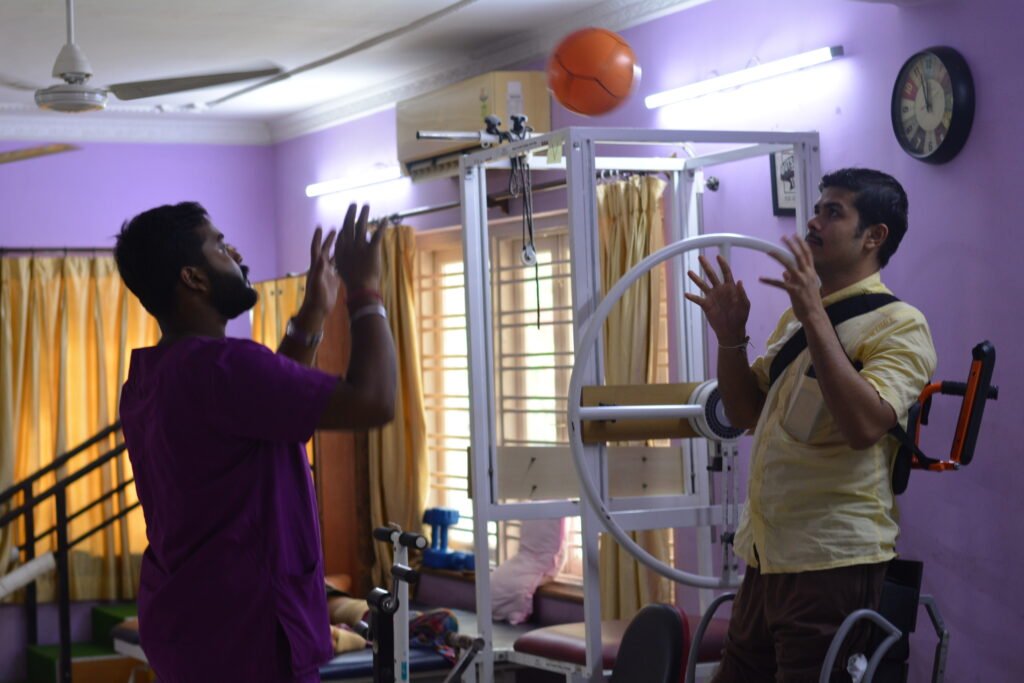
When a loved one experiences a stroke, spinal cord injury, or neurological condition, families often hear two terms: therapy and rehabilitation. They sound alike, don’t they? In truth, they’re quite different.
Think of therapy as a step, and rehabilitation as the journey. Therapy helps you improve strength or speech; rehabilitation helps you walk, talk, and live with confidence again.
At Rehabana, Neuro Rehab Center, Kolkata, we often meet families confused about what kind of care their loved one needs. Our goal is to simplify that so you can make informed, hopeful decisions about recovery.
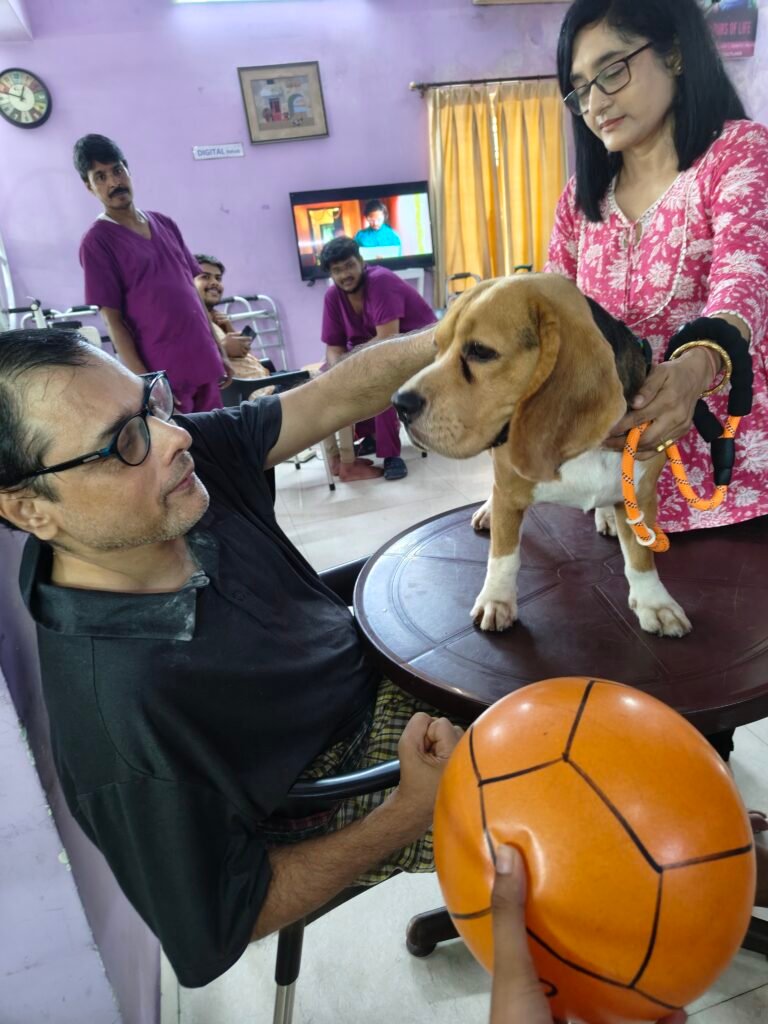
What Is Therapy?
Therapy focuses on specific functions that need to be regained after an illness or injury. It’s like fine-tuning the parts of a system to help it work better.
Here are a few examples:
- Physiotherapy strengthens muscles, improves movement, and restores balance.
- Occupational Therapy helps you relearn daily tasks, dressing, cooking, writing, or even holding a cup.
- Speech Therapy improves speech clarity, swallowing, and communication skills.
Each therapy targets one specific area of recovery. The sessions are often short-term, focused, and conducted by trained therapists under medical guidance.
But therapy by itself is not the full picture. It improves movement, but not necessarily confidence. It builds physical ability, but may not address emotional healing. That’s where rehabilitation steps in to bring everything together.
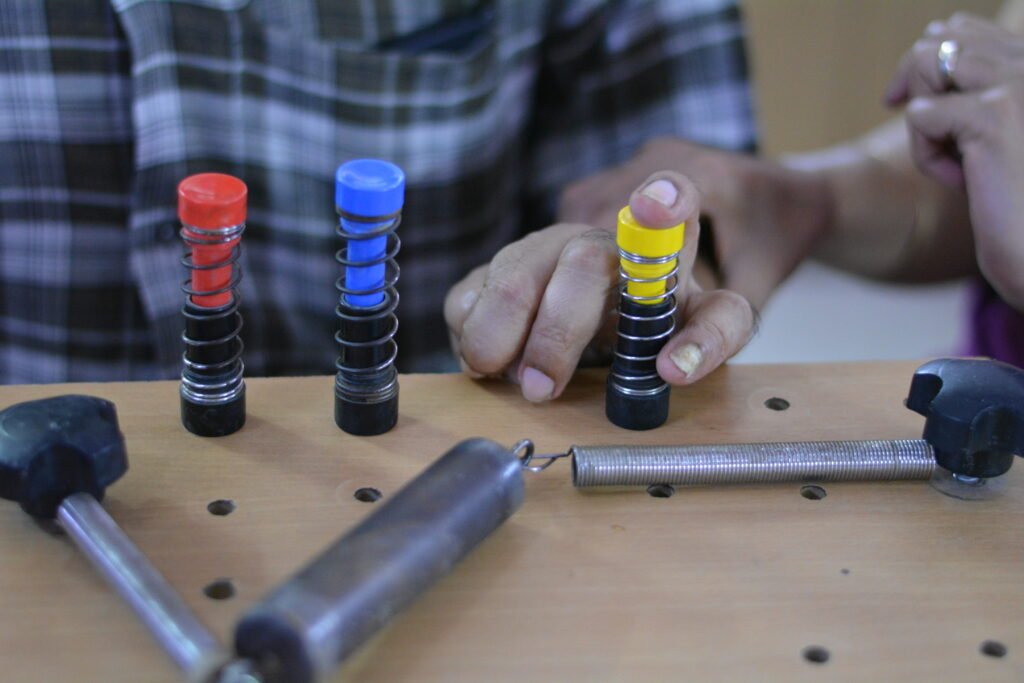
What Is Rehabilitation?
Rehabilitation is the complete recovery process that helps you rebuild your life after a major medical condition. It’s guided by MD doctors in Physical Medicine & Rehabilitation, supported by a multi-disciplinary team of specialists.
At Rehabana, rehabilitation means combining medical treatment, therapy, counselling, and technology to help people get back to independent living.
Here’s what that includes:
- Medical supervision for pain, spasticity, and overall progress
- Advanced therapy machines and robotics for faster recovery
- Customized goals reviewed every two weeks
- Psychological support for patients and caregivers
- Family counseling to build a supportive environment
It’s not just about exercises, it’s about restoring confidence, purpose, and hope.
When a patient smiles after taking their first independent step again, we know rehabilitation is doing its magic.
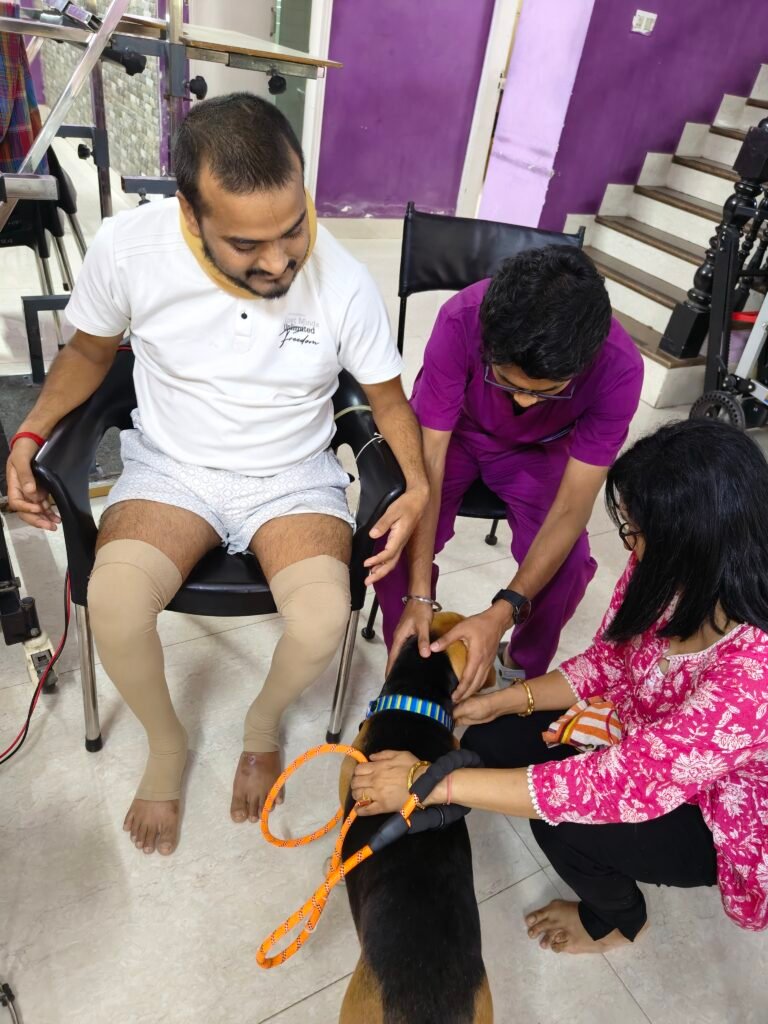
Recommended: Role of Rehabilitation Center: Why It Speeds Up Healing More Than You Think
Key Differences: Rehabilitation vs. Therapy
Here’s how they differ in simple terms:
| Aspect | Therapy | Rehabilitation |
|---|---|---|
| Focus | One skill or function (like walking or speech) | The entire person’s physical, mental, and emotional recovery |
| Led by | Therapist | Doctor-led team (Physiatrist + therapists + nurses) |
| Goal | Improve specific ability | Help patient live independently again |
| Duration | Short-term, session-based | Long-term, stepwise plan reviewed every 2 weeks |
| Approach | Isolated treatment | Integrated medical, emotional, and technological care |
| Technology | Manual or limited equipment | Robotics, automation, and advanced machines |
| Outcome | Functional improvement | Productive, independent life |
Here’s how we often put it at Rehabana:
“Therapy helps you move your hand. Rehabilitation helps you use that hand to hold your loved one’s hand again.”
That’s the difference that changes lives.
Read This: Physiotherapy and Rehabilitation: Here’s the Real Difference
When You Typically Need Rehabilitation
Rehabilitation is usually needed when a condition affects your overall ability to live independently.
For example:
- After a Stroke, to regain balance, coordination, and speech
- After a Spinal Cord Injury, to rebuild movement and posture
- After a Traumatic Brain Injury, to restore function and memory
- For Parkinson’s or Multiple Sclerosis, to slow the decline and improve mobility
- After major surgery or nerve injury, to recover faster and stronger
Rehabilitation bridges the gap between the hospital and home. It’s the difference between just surviving and living with confidence.
At Rehabana, we take pride in being East India’s first dedicated Rehab Center in kolkata giving patients access to advanced machines, robotics, and a team that truly cares.
When You Typically Need Therapy
Therapy is more suitable for focused, short-term goals or less complex conditions.
You might need therapy if:
- You’re recovering from a minor injury
- You have localized stiffness or weakness
- You’re improving speech or swallowing after mild impairment
- You need maintenance exercises after a major recovery
Therapy works best when the person is already medically stable and needs support with one or two specific abilities.
In many cases, therapy continues after rehabilitation, helping patients maintain their progress and strength.
How to Decide: Therapy or Rehabilitation?
Choosing between therapy and rehabilitation can feel confusing but here’s a simple way to think about it:
- If multiple functions are affected, choose rehabilitation.
(For example: walking, talking, and memory together.) - If only one function is affected, therapy might be enough.
- If medical supervision or spasticity management is needed, rehabilitation is essential.
- If you want visible, trackable progress, go for a doctor-led rehab program with reviews and technology integration.
At Rehabana, we guide every family through this decision. Our goal is simple: to offer the right level of care at the right time with compassion and transparency.
Conclusion
The words “therapy” and “rehabilitation” may sound similar, but their meanings and impact are worlds apart.
Therapy builds strength and skills.
Rehabilitation rebuilds confidence, independence, and life itself.
At Rehabana – Rehabilitation Center Kolkata, our doctor-led team combines medical expertise, advanced technology, and human care to help patients recover step by step not just physically, but emotionally too.
Because at the end of the day, healing isn’t just about moving your body. It’s about moving forward with life.
Neuro Rehab means Rehabana.
If you or someone you love is recovering from a stroke, spinal injury, or neurological disorder, we’re here for you.
📞 Call or WhatsApp: 9088746565
📧 Email: rehabana.care@gmail.com
🌐 Visit: www.rehabana.com
Let’s rebuild strength, confidence, and independence together at Rehabana.
FAQs
1. Can therapy and rehabilitation work together?
Absolutely. At Rehabana, therapy is part of every rehabilitation plan guided by doctors and tailored to each patient’s goals.
2. Who needs rehabilitation the most?
Anyone recovering from a stroke, spinal cord injury, brain injury, or neurological disorder who struggles with day-to-day independence.
3. How long does rehabilitation take?
It varies for each person. We review progress every two weeks and update goals based on results.
4. Is rehabilitation costly?
Compared to hospital-based rehab, Rehabana offers affordable, transparent pricing with specialised care included.
5. Why choose Rehabana?
Because we’re not just a therapy centre. We’re a doctor-led, technology-driven neuro rehab facility, the first of its kind in Eastern India.
